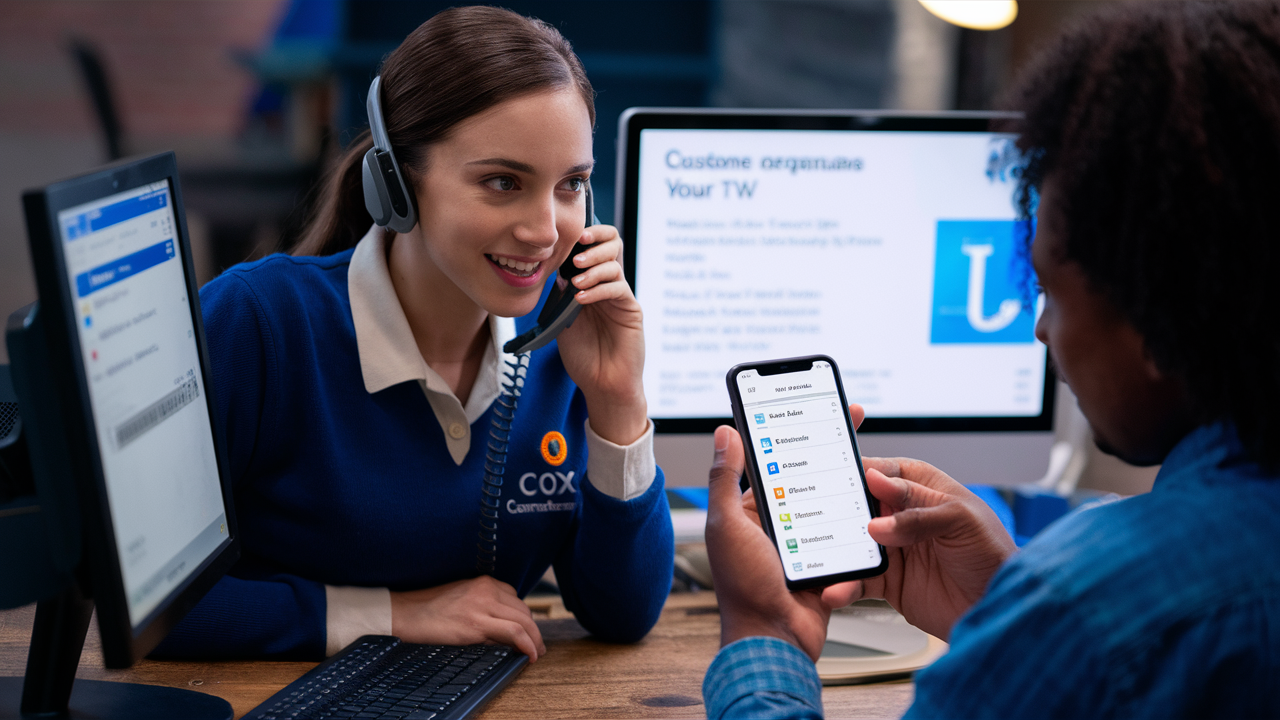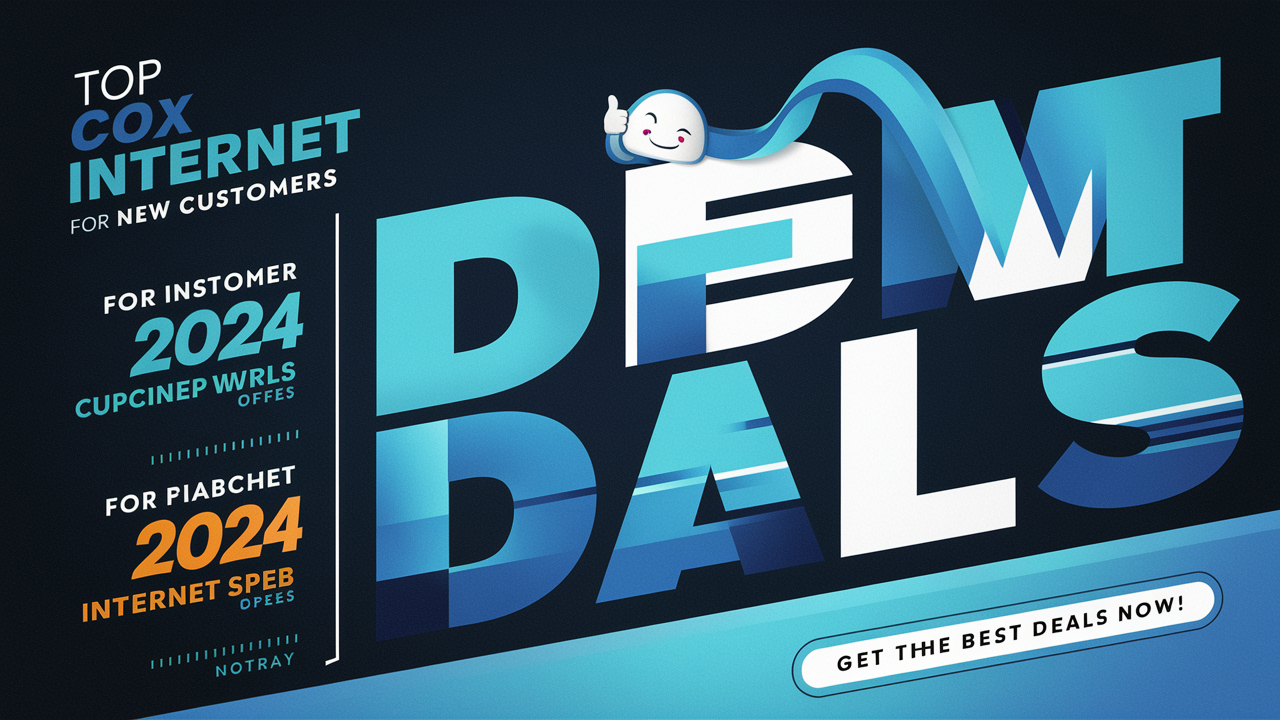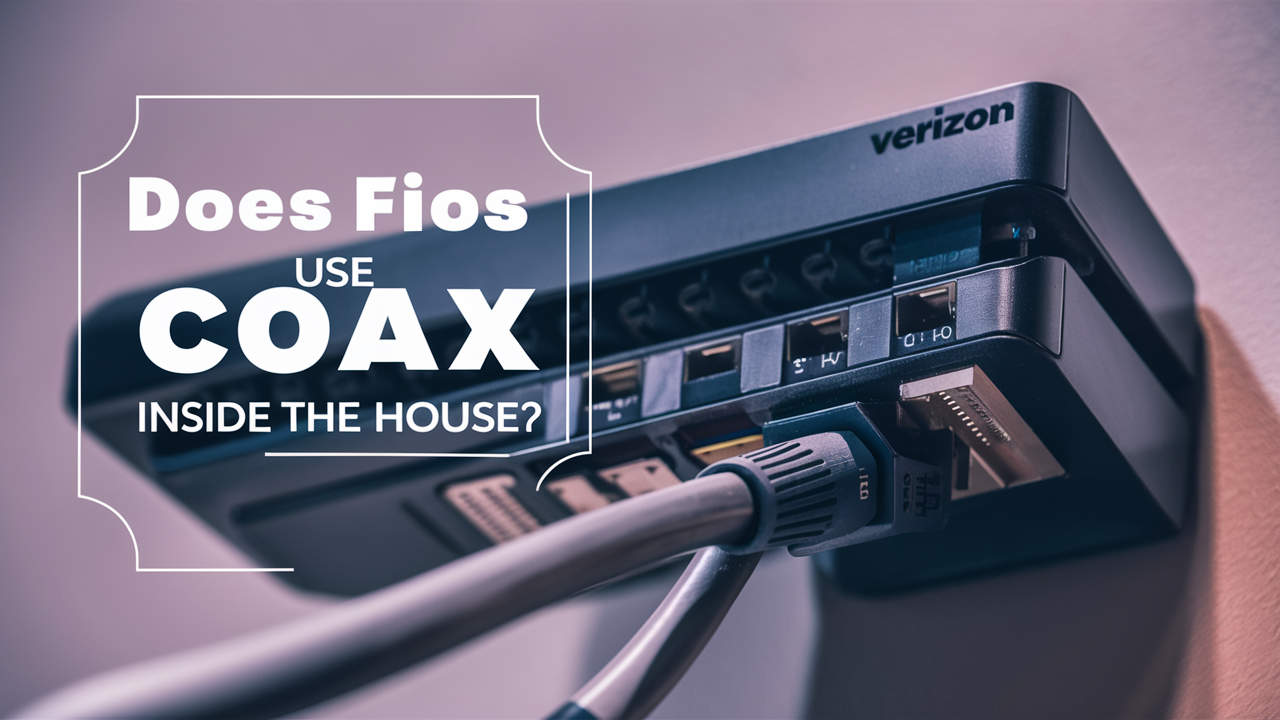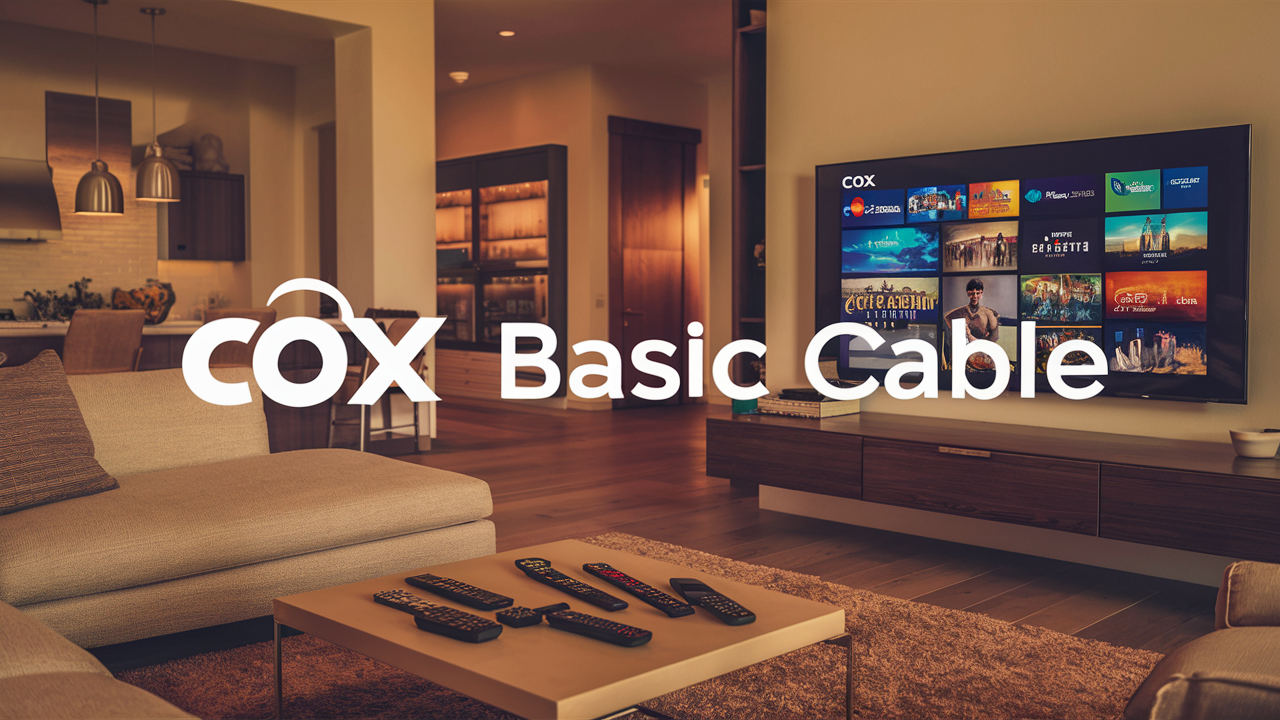Can I Cancel Cox TV and Keep Internet?

Yes, you can absolutely cancel Cox TV and keep your internet service. This guide will walk you through the process, potential pitfalls, and how to ensure a seamless transition, saving you money and hassle. We'll cover everything you need to know to make an informed decision.
Understanding Cox Bundles and Your Options
Cox Communications, like many internet service providers, often encourages customers to bundle their services. This typically means combining internet, cable TV, and sometimes home phone into a single package. The primary allure of these bundles is the perceived cost savings and the convenience of a single bill. However, it's crucial to understand how these bundles are structured and what happens when you decide to unbundle services.
The Anatomy of a Cox Bundle
Cox offers various bundle tiers, often marketed as "starter," "preferred," or "ultimate" packages. These bundles are designed to incentivize long-term commitment and increase customer retention. When you sign up for a bundle, Cox often applies a promotional discount that is contingent on you subscribing to all the bundled services. This discount is usually a significant portion of the overall package price. For instance, a common scenario in 2025 sees a bundled package costing $150 per month, where the internet alone might be valued at $80, the TV at $70, and the bundle discount is $50. Removing one service can, therefore, significantly alter the pricing of the remaining services.
Standalone vs. Bundled Pricing
It's a common misconception that the price of individual services within a bundle is simply the sum of their standalone costs minus the bundle discount. In reality, providers like Cox often adjust the pricing of the remaining services when a bundle is altered. This means that the standalone price for Cox internet might be higher than what you were paying for it as part of a bundle, even after the bundle discount is removed. Understanding this dynamic is key to assessing whether canceling Cox TV will actually lead to the savings you expect.
In 2025, the average cost of standalone high-speed internet from major providers can range from $60 to $100 per month, depending on speed tiers and market competition. Cable TV packages, on the other hand, are notoriously expensive, with basic tiers often starting around $50 and escalating quickly to over $150 for premium channels and sports packages. This significant price difference is the primary driver for many customers considering unbundling.
Contractual Obligations
Before making any changes, it's vital to review your current Cox contract. Many bundles come with a 12-month or 24-month commitment period. Early termination of a contract, or significant changes to your service plan that might be considered a de facto termination of the bundled agreement, can incur early termination fees (ETFs). These fees can range from $10 to $20 per month for each remaining month on your contract. It's essential to calculate the total potential ETF and weigh it against the projected savings from canceling TV service.
For example, if you have six months left on a 24-month contract and the ETF is $15 per month, your total ETF would be $90. If canceling TV saves you $50 per month, you would need to keep the internet for at least two months after canceling TV to break even on the ETF. Always verify the exact terms and conditions of your specific contract with Cox customer service.
Types of Cox Packages
Cox offers several types of packages:
- Internet Only: This is the simplest option, focusing solely on providing internet access.
- TV Only: Less common as a standalone offering, as Cox's core business is internet and TV bundles.
- Bundles (Internet + TV, Internet + TV + Phone): These are the most prevalent offerings, providing discounts for combining services.
- Gigablast and Other High-Speed Tiers: These focus on internet speed and are often part of bundles or offered standalone.
When you have a bundle, Cox views your internet service as intrinsically linked to your TV subscription through the bundled discount. Removing the TV component often means the discount is rescinded, and the internet price reverts to its non-bundled rate, which might be higher than anticipated.
Why People Cancel Cox TV While Keeping Internet
The decision to cut the cord on traditional cable TV, even from a provider like Cox, is driven by a confluence of factors. The rise of streaming services, coupled with the increasing cost of cable packages, has fundamentally shifted how consumers access entertainment. Understanding these motivations can help you solidify your own decision and prepare for the transition.
The Rise of Streaming Services
In 2025, the streaming landscape is more diverse and robust than ever. Services like Netflix, Hulu, Disney+, Max, Amazon Prime Video, Apple TV+, and Peacock offer vast libraries of on-demand content, original series, and live sports at a fraction of the cost of a comprehensive cable package. Users can subscribe to only the services they want, offering unparalleled flexibility and customization. For instance, a user might subscribe to:
- Netflix for popular movies and series.
- Disney+ for family-friendly content and Marvel/Star Wars franchises.
- ESPN+ for specific sports events not covered by their preferred cable channels.
- A live TV streaming service like YouTube TV or Hulu + Live TV for a selection of live channels.
The total cost for a curated selection of streaming services often falls between $50 and $100 per month, significantly less than many premium Cox TV packages which can easily exceed $150-$200 monthly.
Cost Savings
This is arguably the most significant driver. Cable TV bills have a notorious tendency to creep up over time, with incremental price hikes, increased fees for regional sports networks, and the cost of premium channels adding up. Many customers realize that by canceling their Cox TV subscription, they can eliminate a substantial monthly expense. The savings can then be reallocated to streaming services, other household needs, or simply kept as disposable income.
Consider this 2025 scenario: A customer pays $180 for a Cox bundle that includes internet and TV. Their internet-only rate after canceling TV might be $90. The TV portion, therefore, was costing them $90. If they replace this with a combination of Netflix ($15), Disney+ ($13), and YouTube TV ($73), their total entertainment cost becomes $101. While not a massive saving in this specific example, if they opt for fewer streaming services or find a cheaper live TV alternative, the savings can be much more pronounced. For instance, replacing YouTube TV with Sling TV ($55) brings the total to $83, a saving of $7 per month plus the elimination of cable fees and potential equipment rental costs.
Frustration with Cable Packages and Fees
Cable TV packages are often bloated. Customers pay for hundreds of channels, most of which they never watch. The inclusion of channels like C-SPAN, QVC, or niche foreign language channels in a premium package can be frustrating when the primary goal is to watch popular sports, movies, or network shows. Furthermore, hidden fees, such as broadcast TV fees, regional sports fees, equipment rental fees (for cable boxes and DVRs), and taxes, can significantly inflate the final bill, often by 20-30% or more.
In 2025, the average monthly fees for cable boxes and DVRs from providers like Cox can range from $10 to $25 per month per device. Canceling TV eliminates these rental fees entirely. Additionally, the elimination of broadcast and regional sports fees, which can add $10-$20+ each to a bill, contributes to the overall savings.
Desire for More Control and Flexibility
Streaming services offer a level of control that traditional cable often lacks. Users can pause, rewind, and fast-forward live TV (in many cases), watch content on any device (smart TV, tablet, phone, computer), and download shows for offline viewing. They can also subscribe and unsubscribe to services on a month-to-month basis, allowing them to follow specific shows or sports seasons without long-term commitments. This flexibility is highly appealing in today's fast-paced digital world.
Access to Specific Content
Sometimes, the decision is driven by the availability of exclusive content. Certain highly anticipated series or sporting events might be exclusive to a particular streaming platform. If a significant portion of your viewing habits revolves around such exclusive content, it makes more financial sense to subscribe to that specific service rather than paying for a broad cable package that may or may not include it.
The Process: Canceling Cox TV Service
Canceling Cox TV while keeping your internet service is a multi-step process that requires careful planning and communication. The key is to ensure you don't inadvertently cancel your internet service or incur unexpected fees. Here's a breakdown of how to navigate the process effectively.
Step 1: Review Your Current Cox Account and Contract
Before you do anything else, log in to your Cox account online or review your latest bill. You need to understand:
- Your Current Package: What specific services are included in your bundle (Internet speed, TV channel package, phone service)?
- Your Contract End Date: Are you currently under a contract? If so, when does it expire?
- Early Termination Fees (ETFs): If you are under contract, what is the exact amount of the ETF? This information is usually detailed in your contract terms or can be obtained by calling customer service.
- Current Monthly Charges: What is your total bill, and what are the individual charges for internet, TV, equipment rental, and any other fees?
Action: Note down all relevant details. If your contract is ending soon, you have more flexibility. If you're mid-contract, calculate the ETF and compare it to potential savings.
Step 2: Determine Your New Internet Needs
Since you're keeping your Cox internet, confirm the speed tier you currently have and whether it meets your needs. If you're happy with it, you'll aim to keep that same speed. If you've been considering an upgrade or downgrade, now might be the time to explore those options. However, for simplicity and to avoid unexpected price changes, it's often best to aim for keeping your current internet speed initially.
Step 3: Contact Cox Customer Service
This is the most critical step. You need to speak with a Cox representative to initiate the change. There are typically two ways to do this:
- Phone: This is often the most effective method for complex service changes. Call Cox's customer service line. Be prepared for a potentially long hold time.
- Online Chat: Cox often offers an online chat option, which can be convenient. However, ensure you get a transcript of the conversation for your records.
What to say: Clearly state that you want to cancel your Cox TV service but keep your Cox internet service. Do NOT say you want to cancel your entire Cox account or bundle. Be specific.
Key questions to ask:
- "What will be the new monthly price for my internet service after canceling TV?"
- "Will my internet speed remain the same?"
- "Are there any equipment rental fees associated with my internet service?" (You may need to return TV equipment.)
- "Are there any fees or penalties for removing the TV service, especially if I'm under contract?"
- "What is the process for returning my Cox TV equipment?"
- "Can you confirm the effective date of these changes?"
Important: Ask for a confirmation number or an email summarizing the changes. If you're on the phone, ask the representative for their name and employee ID.
Step 4: Negotiate and Confirm Pricing
As mentioned earlier, removing TV from a bundle often results in the loss of a bundle discount. Cox may try to steer you towards a new, potentially more expensive internet-only plan or a different bundle. Be firm in your request to keep your current internet speed at the best possible rate. If the quoted price for internet-only seems too high, politely inquire about any available internet-only promotions or loyalty discounts. You might be surprised what they offer to retain your internet business.
Example Negotiation: If they quote you $100 for internet-only and your bundled internet was effectively $80, you can say, "I understand the bundle discount is gone, but $100 seems quite high compared to what I was paying. Are there any internet-only plans or promotions available for long-term customers like myself?"
Step 5: Return Cox TV Equipment
Once your TV service is officially canceled, you will need to return any Cox-provided TV equipment. This typically includes cable boxes, DVRs, remotes, and any associated power cords or cables. Failure to return equipment can result in significant unreturned equipment fees, which can be more expensive than the monthly rental fees.
How to return:
- Cox Store: The most common method is to take the equipment to a local Cox retail store. They will usually provide a receipt confirming the return.
- Mail-in: Cox may provide a prepaid shipping label for you to mail the equipment back. Ensure you get a tracking number.
- Technician Pickup: In some cases, a technician might be scheduled to pick up the equipment, but this is less common for cancellations.
Action: Get a receipt or confirmation of the equipment return. Keep this for your records.
Step 6: Verify Your Next Bill
After the changes take effect, carefully review your next Cox bill. Ensure that:
- The TV service charges are removed.
- Your internet service is still active and at the correct speed.
- The new monthly price for your internet service matches what you agreed upon.
- There are no unexpected fees or charges.
- Equipment rental fees for TV equipment are no longer present.
If there are any discrepancies, contact Cox customer service immediately to resolve them. Having your confirmation number, the representative's name, and a transcript (if applicable) will be invaluable.
Potential Impact on Your Internet Service
The primary concern for most users is whether canceling Cox TV will negatively affect their internet service. While Cox intends for customers to keep their internet, there are several potential impacts and considerations to be aware of.
Price Adjustments (The Most Common Impact)
As discussed, the most significant impact is almost always on the price of your internet service. When you bundle, you benefit from a discount that is contingent on subscribing to multiple services. Removing the TV component typically invalidates this bundle discount. Consequently, your internet service will likely revert to its non-bundled, standalone price. This price is often higher than what you were paying for internet within the bundle.
Example: A customer pays $130 for a Cox bundle (Internet Preferred + TV Starter). The breakdown might be: Internet Preferred = $80, TV Starter = $70, Bundle Discount = -$20. Total = $130. After canceling TV, the internet might revert to its standard $80 price, but the customer might be told the new price is $95 due to the loss of the bundle. This is why negotiation is crucial.
Loss of Bundled Promotions
If your current internet price is part of a promotional offer tied to the bundle, that promotion will likely end when you cancel the TV service. You'll then be subject to the standard rate for your internet speed tier, which could be substantially higher.
Equipment Compatibility and Rental Fees
Cox typically provides separate equipment for TV (cable boxes, DVRs) and internet (modems, routers). When you cancel TV, you'll need to return the TV equipment. Your internet modem and router are usually separate and will continue to function. However, if you were renting a modem/router combo unit from Cox that also had TV tuner capabilities (less common for pure internet, but possible in some older configurations), you might need to clarify its continued functionality for internet-only service. Most standard Cox internet modems are unaffected.
In 2025, Cox offers both modem rentals (typically $10-$15/month) and the option to use your own compatible modem and router, which can save money in the long run. Ensure your current internet equipment is compatible with Cox's network for internet-only service.
Service Tier and Speed
Cox generally does not reduce your internet speed when you cancel TV. Your internet service tier is usually independent of your TV subscription. However, it's always wise to confirm this with the representative. They might try to upsell you to a faster internet plan, but your current speed should remain available.
Potential for Service Interruption (Rare but Possible)
While unlikely if you clearly communicate your intent to keep internet service, there's a minuscule risk of service interruption if the cancellation order is processed incorrectly. This is why getting confirmation and verifying your bill is so important. Always ensure the representative explicitly states they are only canceling the TV portion of your service.
Impact on Phone Service (If Bundled)
If your bundle also included Cox Voice (home phone service), canceling TV might also affect the phone service pricing or require a separate plan. You would need to clarify the terms for standalone phone service if you wish to keep it. Often, phone service is bundled tightly with TV and internet, and its standalone price can be quite high.
Billing Changes
Your billing cycle and the way your services are itemized will change. You'll move from a bundled bill to an internet-only bill. Ensure you understand the new billing structure and due dates.
What to do if your internet is negatively impacted:
- Immediate Re-negotiation: If the price jumps unexpectedly or your service is affected, contact Cox immediately.
- Escalate: If the initial customer service representative cannot resolve the issue, ask to speak with a supervisor or the loyalty/retention department.
- Document Everything: Keep records of all calls, representative names, dates, times, and confirmation numbers.
Alternatives to Cox TV for Entertainment
Canceling Cox TV opens the door to a world of more flexible, cost-effective, and personalized entertainment options. The key is to build a new entertainment ecosystem that suits your viewing habits and budget. Here are the primary alternatives:
Live TV Streaming Services (The "Cable Replacements")
These services offer a selection of live channels, often including local networks, sports channels, and popular cable networks, streamed over the internet. They are designed to mimic the experience of traditional cable TV but with more flexibility and often lower costs.
- YouTube TV: (Approx. $73/month) Offers a comprehensive package of over 100 channels, including local ABC, CBS, FOX, and NBC in most areas. Unlimited cloud DVR storage.
- Hulu + Live TV: (Approx. $77/month for base plan) Includes live TV channels plus access to Hulu's on-demand library and Disney+.
- Sling TV: (Starts around $40/month for Orange or Blue plan, $55 for both) A more customizable option with two base packages (Orange for ESPN/Disney, Blue for Fox/NBC/CNN) and numerous add-on "Extras" for sports, kids, comedy, etc.
- FuboTV: (Starts around $80/month) Primarily focused on sports, offering a vast array of sports channels, but also includes many general entertainment channels.
- DirecTV Stream: (Starts around $70/month) Offers various packages, including some that come with a free streaming device. Can be more expensive but offers a wide range of channels.
Considerations: Check which services offer your local channels and the specific sports or entertainment networks you can't live without. Most offer free trials, allowing you to test them out.
On-Demand Streaming Services
These are the backbone of cord-cutting, providing vast libraries of movies, TV shows, and original content that you can watch anytime.
- Netflix: (Approx. $7-$20/month depending on plan) The pioneer of streaming, offering a huge catalog of movies, series, documentaries, and acclaimed originals.
- Max (formerly HBO Max): (Approx. $10-$20/month depending on plan) Home to HBO content, Warner Bros. films, DC universe, and Discovery+ content.
- Disney+: (Approx. $8-$14/month depending on plan) Essential for Disney, Pixar, Marvel, Star Wars, and National Geographic content.
- Amazon Prime Video: (Included with Amazon Prime, approx. $14.99/month or $139/year) Offers a growing library of movies, TV shows, and originals, plus live sports like NFL Thursday Night Football.
- Apple TV+: (Approx. $9.99/month) Known for its high-quality, award-winning original series and films.
- Peacock: (Free tier available, Premium approx. $6/month) Offers NBC content, Universal movies, and live sports like Premier League soccer.
- Paramount+: (Approx. $6-$12/month) Features CBS content, Paramount movies, and live sports like NFL on CBS and UEFA Champions League.
Strategy: Mix and match these services based on your interests. You can subscribe to one or two for a few months, watch what you want, then cancel and switch to others. This "cycling" strategy can save significant money.
Free Streaming Services
Don't overlook the free options available, which can supplement your paid subscriptions:
- Pluto TV: Offers live channels and on-demand content from various providers, often mimicking traditional TV channel lineups.
- Tubi: A large library of free movies and TV shows with ads.
- Crackle: Owned by Sony, offering a selection of free movies and series.
- IMDb TV (now Amazon Freevee): Free movies and TV shows with ads, accessible through Amazon.
Digital Rentals and Purchases
For specific movies or shows not available on subscription services, you can rent or buy them digitally from platforms like:
- Amazon Prime Video
- Google Play Movies & TV
- Apple TV (iTunes Store)
- Vudu
Renting a new release movie typically costs $4-$6, which is far cheaper than buying it or subscribing to a service solely for that one film.
Over-the-Air (OTA) Antenna
For local broadcast channels (ABC, CBS, NBC, FOX, PBS, etc.), a digital antenna is a fantastic, one-time purchase solution. In most urban and suburban areas, you can receive dozens of channels in high definition for free. The quality is often superior to cable reception.
Cost: Antennas range from $20 to $100, depending on range and type.
Building Your Custom Package
The beauty of these alternatives is the ability to customize. For example, a typical cord-cutter's monthly entertainment budget in 2025 might look like this:
- YouTube TV (for live channels): $73
- Netflix (for on-demand): $15
- Disney+ (for family content): $13
- Total: $101
This provides a comprehensive entertainment package that is significantly cheaper than many Cox TV bundles.
Tips for a Smooth Transition
A successful transition from a bundled Cox service to an internet-only plan involves more than just canceling TV. Proactive planning and attention to detail will prevent headaches and ensure you're not left without entertainment or facing unexpected charges.
1. Plan Your Entertainment Strategy in Advance
Don't wait until your Cox TV is canceled to figure out what you'll watch. Research streaming services, compare channel lineups of live TV options, and identify the ones that best match your viewing habits. Consider:
- Must-Have Channels: Which live sports leagues, news channels, or specific networks are non-negotiable?
- Favorite Shows/Movies: Where can you find the content you regularly watch?
- Budget: How much are you willing to spend on streaming services each month?
Action: Make a list of your top 3-5 streaming services and one live TV option to trial. Sign up for free trials a week or two before canceling Cox TV to test them out.
2. Understand Your Cox Contract Thoroughly
We've emphasized this, but it bears repeating. Ignorance of your contract terms is the most common reason for unexpected fees. If you're unsure, call Cox and ask for clarification on your contract end date and ETF. Don't rely on assumptions.
3. Communicate Clearly with Cox Representatives
When you call Cox, be direct and specific. Use phrases like "I want to cancel my TV service only" and "I want to keep my internet service." Avoid vague statements like "I want to cancel my bundle" or "I want to change my services," as these can lead to misunderstandings.
Tip: If you're having trouble getting a clear answer or feel you're being pushed into something you don't want, politely ask to speak with a supervisor or the customer retention department. They often have more authority to offer solutions.
4. Get Everything in Writing
After any phone conversation where changes are agreed upon, request an email confirmation or a summary of the changes. If using online chat, save a transcript of the conversation. This documentation is crucial if any disputes arise later.
5. Schedule TV Equipment Return Promptly
Don't delay returning your Cox TV equipment. The sooner you return it, the sooner you stop accumulating potential late fees or unreturned equipment charges. Ensure you get a receipt or tracking number as proof of return.
6. Test Your Internet Service Immediately After the Change
Once your TV service is officially canceled and your internet-only bill takes effect, run a speed test on your internet connection. Ensure it's performing as expected and that you haven't experienced any unexpected throttling or degradation.
7. Be Prepared for a Price Increase on Internet
While you're aiming for the best possible price, accept that your internet-only rate will likely be higher than your bundled internet rate. Your goal is to minimize this increase through negotiation and by understanding standalone pricing.
8. Consider Your Own Equipment
If you're currently renting a Cox modem/router, investigate the cost savings of purchasing your own compatible equipment. Many modern modems and routers are compatible with Cox's network and can pay for themselves within a year or two in rental fee savings. Check Cox's list of approved modems on their website.
9. Set Up Auto-Pay for Your New Bill
Once you've verified your new internet-only bill is correct, consider setting up auto-pay. This helps avoid late fees and ensures your internet service remains uninterrupted.
10. Keep a Record of Your New Entertainment Costs
Track the monthly costs of your chosen streaming services. This will help you confirm the actual savings you're achieving compared to your old Cox bundle and allow you to adjust your subscriptions as needed.
Calculating Potential Cost Savings and ROI
The primary motivation for canceling Cox TV is often financial. Accurately calculating potential cost savings and understanding the return on investment (ROI) for your decision is essential. This involves a clear comparison of your old bundled costs versus your new internet-only and streaming service costs.
Step 1: Determine Your Old Monthly Cox Bill
Look at your average monthly bill from the last 3-6 months. This should include:
- Internet service cost (your portion within the bundle)
- TV service cost (your portion within the bundle)
- Equipment rental fees (for TV boxes, DVRs)
- Any other Cox-related fees (e.g., broadcast fees, regional sports fees)
Example Old Bill:
- Internet (part of bundle): $70
- TV (part of bundle): $90
- DVR Rental: $15
- Broadcast Fee: $10
- Regional Sports Fee: $15
- Total Old Cox Bill: $200/month
Step 2: Determine Your New Monthly Internet-Only Cost
This is the price you negotiated with Cox for your internet service after canceling TV. It should include:
- Internet service cost (new standalone rate)
- Any internet equipment rental fees (if applicable)
- Taxes and fees associated with internet service
Example New Internet Bill:
- Internet (standalone): $95
- Modem Rental: $12
- Taxes/Fees: $8
- Total New Internet Bill: $115/month
Step 3: Calculate Your New Monthly Entertainment Costs
This includes the cost of all the streaming services and live TV alternatives you've subscribed to.
Example New Entertainment Costs:
- YouTube TV: $73
- Netflix Premium: $20
- Disney+ Premium: $14
- Total New Entertainment Costs: $107/month
Step 4: Calculate Total New Monthly Expenses
Add your new internet bill and your new entertainment costs.
Example Total New Monthly Expenses:
- New Internet Bill: $115
- New Entertainment Costs: $107
- Total New Monthly Expenses: $222/month
Wait, this looks higher! What went wrong? This is where careful analysis is needed. In this specific example, the "savings" might not be immediately obvious if the internet price increased significantly and the chosen streaming package is comprehensive. Let's re-evaluate the *savings* directly.
Calculating Direct Savings
The true saving comes from the difference between what you *were* paying for TV and what you *are now* paying for equivalent entertainment.
Option A: Direct Savings Calculation (Focus on what you eliminated)
- Old Cox Bill: $200
- New Internet Bill: $115
- Difference (Savings from canceling TV + fees): $85/month
This $85 is what you saved by getting rid of the Cox TV portion. Now, you are spending $107 on streaming. The net change in your pocket is:
- Savings from Cox TV elimination: $85
- New spending on streaming: $107
- Net Monthly Change: -$22 (meaning you're spending $22 more per month in this specific, illustrative scenario)
This highlights the importance of choosing streaming services wisely. If the user opted for Sling TV ($55) instead of YouTube TV, their new entertainment cost would be $55 + $20 + $14 = $89. Their total new monthly expenses would be $115 (internet) + $89 (streaming) = $204. In this case, the net monthly change would be $200 (old) - $204 (new) = -$4 (a small increase). If they used free streaming services for some content, the savings would be greater.
Option B: Savings by Comparing Value
- Cost of eliminated Cox TV service (estimated): $110 (TV $90 + DVR $15 + Fees $15)
- Cost of new streaming entertainment: $107
- Net difference: $3/month saved (This is if the user chose the $107 streaming package).
If the user chose a cheaper streaming package for $89, they would be saving $110 - $89 = $21 per month.
Return on Investment (ROI)
ROI is calculated by dividing the net profit (savings) by the total cost (initial investment, if any) and multiplying by 100. In this context, the "investment" is essentially the money spent on streaming services compared to the money saved from canceling Cox TV.
Formula: ROI = (Total Savings / Total Streaming Costs) * 100
Using the example where the user saves $85 by canceling TV and spends $107 on streaming:
- Total Savings (from eliminating TV): $85/month
- Total Streaming Costs: $107/month
- ROI = ($85 / $107) * 100 = 79.4% (This is a monthly ROI, meaning for every dollar spent on streaming, $0.79 is "returned" in savings compared to the old TV cost).
If the user opted for the cheaper streaming package ($89) and saved $21 monthly:
- Total Savings (from eliminating TV): $85/month
- Total Streaming Costs: $89/month
- ROI = ($85 / $89) * 100 = 95.5%
This shows that a more budget-conscious streaming strategy yields a higher ROI.
Factors Affecting Savings
- Contractual ETFs: If you have ETFs, the initial savings will be negated until the ETF is paid off.
- Cox Internet Price Increase: The higher your new internet-only rate, the less your overall savings will be.
- Your Streaming Habits: Subscribing to many premium streaming services will reduce savings.
- Promotional Offers: Taking advantage of new customer deals on streaming services can boost initial savings.
By meticulously tracking these costs, you can clearly see the financial benefit of cutting the cord on Cox TV.
Troubleshooting Common Issues
Even with careful planning, you might encounter minor hiccups when transitioning from a Cox bundle. Here’s how to address the most common problems.
Issue 1: Unexpectedly High Internet Bill
Problem: Your first bill after canceling TV shows a much higher internet price than you expected or agreed upon.
Solution:
- Review Your Confirmation: Check the email or transcript from your conversation with Cox. Does it clearly state the new monthly price for your internet service?
- Call Cox Customer Service Immediately: Refer to your confirmation details. Explain the discrepancy and state the agreed-upon price.
- Ask for a Supervisor: If the initial representative cannot resolve it, escalate the call.
- Check for Hidden Fees: Ensure no new equipment rental fees or unexpected service charges have been added.
Issue 2: Internet Service Interruption or Slowdown
Problem: Your internet stops working or becomes significantly slower after the TV service cancellation.
Solution:
- Reboot Your Modem/Router: Unplug your modem and router for 30 seconds, then plug them back in. This resolves many common connectivity issues.
- Check Cox Service Status: Visit the Cox website or app to see if there are any reported outages in your area.
- Contact Cox Technical Support: If the issue persists, call technical support. Clearly state you are an internet-only customer.
- Verify Equipment: Ensure your modem and router are functioning correctly and are compatible with Cox's network for internet-only service.
Issue 3: Difficulty Returning TV Equipment
Problem: You can't find a Cox store, or the mail-in process is unclear.
Solution:
- Check the Cox Website: Cox's support section usually has detailed information on equipment returns, including store locations and shipping instructions.
- Contact Cox Support for Alternatives: If you still face issues, call customer service and explain your situation. They may offer alternative return methods.
- Document Your Efforts: Keep records of calls, emails, and any attempts to return equipment.
Issue 4: Being Charged for Unreturned Equipment
Problem: Your bill includes charges for TV equipment you believe you returned.
Solution:
- Locate Your Return Receipt/Tracking: This is your proof of return.
- Contact Cox Billing Department: Provide your proof of return and dispute the charges.
- Escalate if Necessary: If billing doesn't resolve it, ask for a supervisor.
Issue 5: Loss of Bundled Internet Promotions
Problem: Your internet price increased significantly because a bundled promotion ended.
Solution:
- Negotiate New Promotions: Contact Cox and inquire about current internet-only promotions or loyalty discounts.
- Consider Your Own Equipment: If you're renting a modem, buying your own can offset some of the price increase.
- Explore Competitors: If Cox's standalone internet prices are too high, research other providers in your area.
Issue 6: Confusion About New Streaming Service Costs
Problem: The combined cost of your streaming services feels higher than anticipated.
Solution:
- Review Subscriptions: List all your streaming services and their monthly costs.
- Identify Unused Services: Are there any services you rarely use? Cancel them.
- Cycle Subscriptions: Consider subscribing to services only when they have content you want to watch, then canceling and switching.
- Explore Cheaper Tiers: If available, opt for lower-cost subscription tiers (e.g., with ads, or fewer simultaneous streams).
By being prepared for these common issues and knowing how to troubleshoot them, you can ensure a smooth and cost-effective transition away from your Cox TV service.
Conclusion
The question "Can I Cancel Cox TV and Keep Internet?" has a resounding answer: yes. This transition is not only possible but often a financially prudent move for many consumers in 2025. By understanding the structure of Cox bundles, the rising appeal of streaming alternatives, and the step-by-step process of service modification, you can effectively cut the cord on expensive cable TV without sacrificing your internet connection. Remember to meticulously review your contract, communicate clearly with Cox representatives, and confirm all changes in writing. The potential cost savings are significant, allowing you to reinvest in personalized entertainment packages that better suit your lifestyle and budget. While there might be initial price adjustments for your internet service, proactive negotiation and a strategic approach to selecting streaming services can lead to substantial long-term savings and greater control over your entertainment expenses. Embrace the flexibility and cost-efficiency of modern entertainment solutions.





